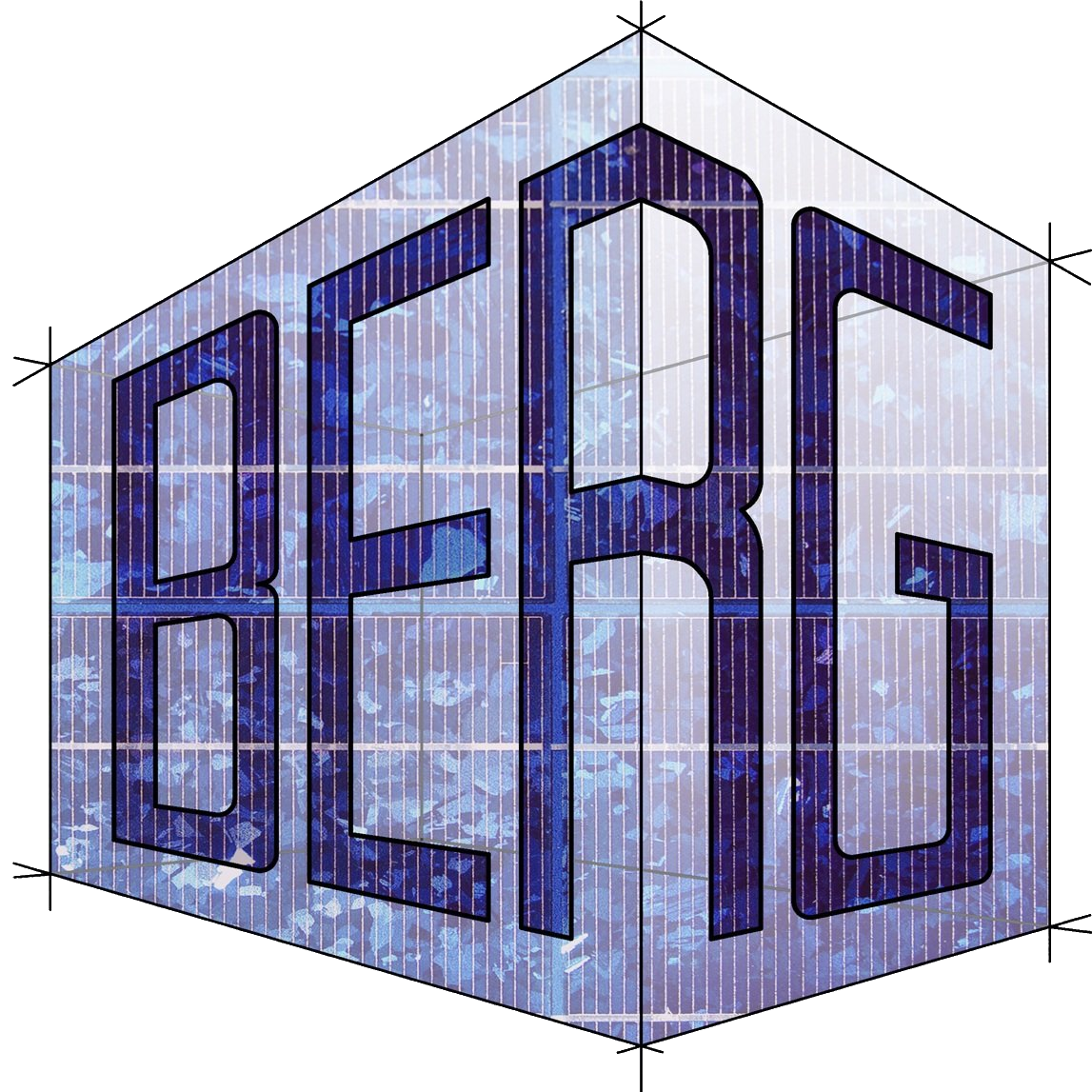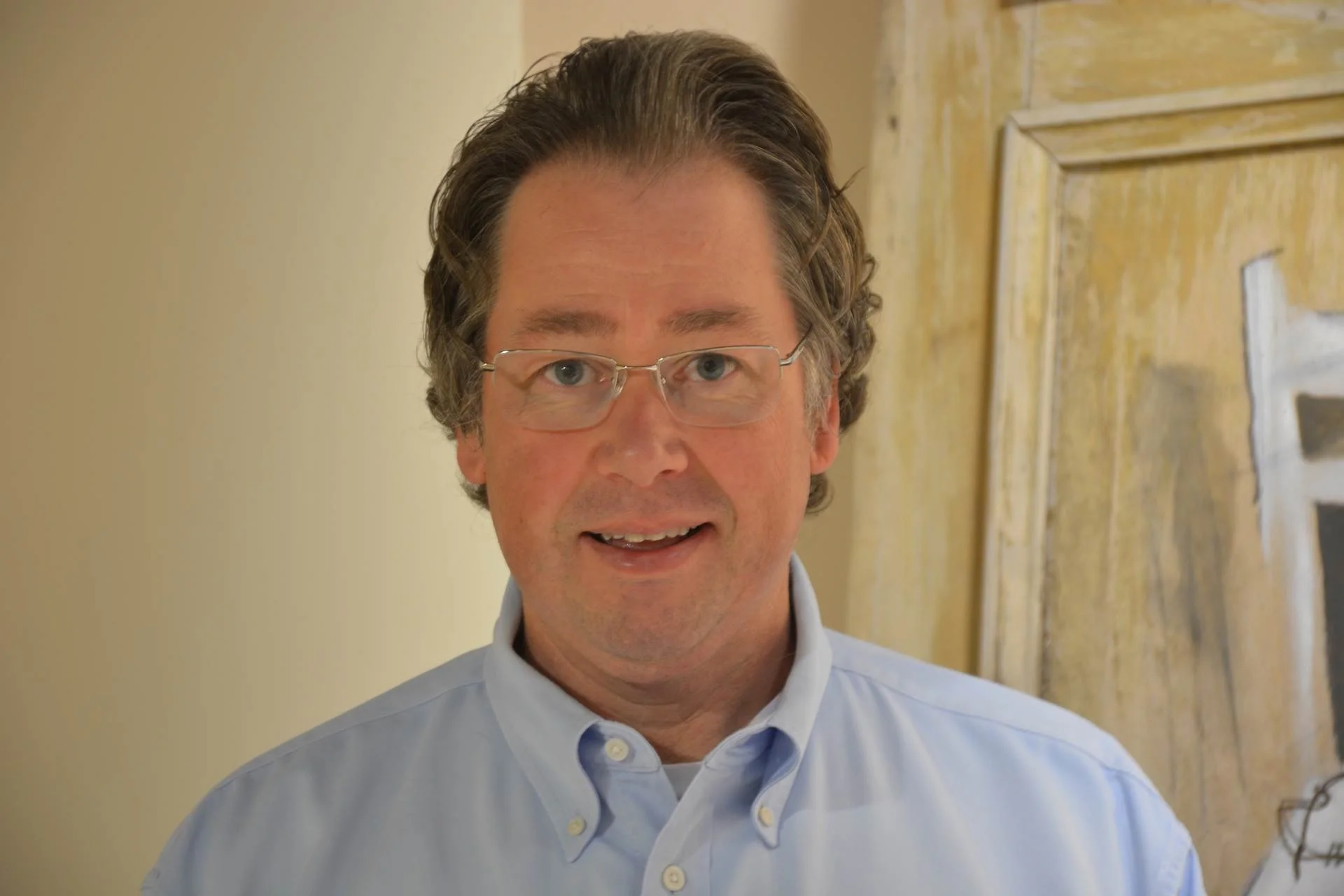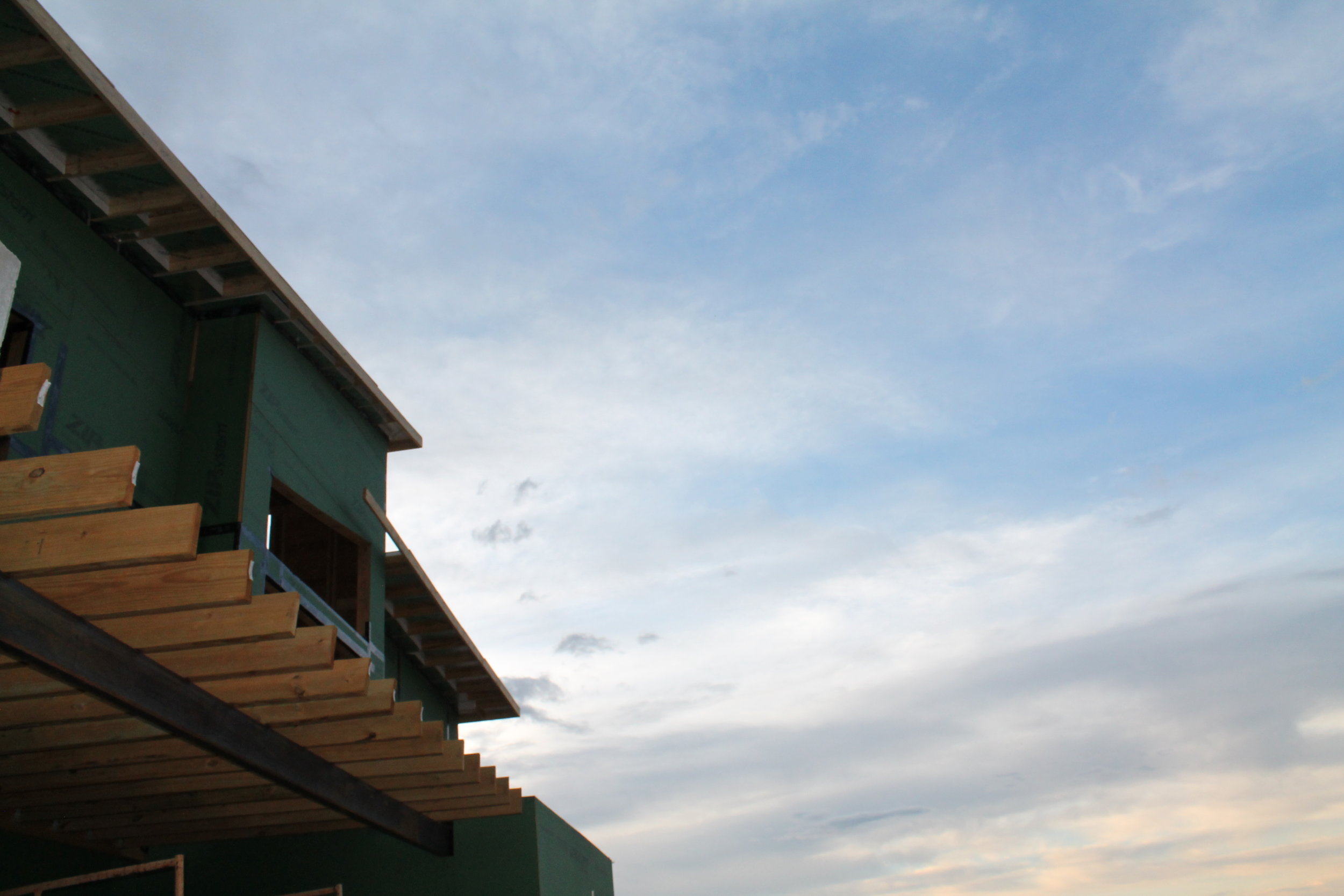by Lauren Miller
“It’s the big challenge of our time - how to use energy more responsibly, while not going backwards in terms of our standards of living and our comfort”
Dr. Anthony Denzer is an integral member of the College of Engineering, and his innovations in the field of sustainable building in Wyoming are nothing short of revolutionary. Dr. Denzer began his academic journey studying journalism at the University of California Berkeley, before moving on to get his M.Arch from the University of Kansas and ultimately obtaining his Ph.D in Architecture from the University of California Los Angeles. He came upon the University of Wyoming as he was researching possible careers, and after visiting the campus and meeting the faculty and the students, he knew it would be a perfect fit. He has been working at the university the past thirteen years.
The interest in architecture for Dr. Denzer had been instilled from an early age. He grew up following his father to construction sites and looking at pipe fittings. Getting to see the inner-workings of the buildings helped to instill the early knowledge and interest of building. As he started pursuing architecture in school, he was very drawn to the historical aspects of architecture. The historical context of building brought Dr. Denzer to look more closely at sustainable building practices, "History was always my favorite class, I was spending more time in the library than I was in the drafting room". This fascination with the historical aspects of architecture gave him a unique view when he approached new projects. This view has benefited him professionally and can also be observed in his book The Solar House: Pioneering Sustainable Design which delves into the history and present of solar houses.
The sun rises near the Crowheart project, one of the houses which BERG is currently working to help build.
With his interest in historical architecture, one period in time that stood out was the 20th century and the relationship between building standards, and energy costs and usage. "Throughout the 20th century buildings were built poorly, because they were built on the premise of free energy. Buildings were very leaky, they were very poorly insulated". In particular, in the 1930's to the 1950's, required energy inputs weren't heavily weighted when buildings were designed. With rising energy prices as well as a societal shift in consciousness about energy usage, Dr. Denzer recognized the changes which were necessary and were just starting to be implemented. He saw the problems that building more energy efficient buildings could minimize. The argument for green building lies in the fact that reducing energy use benefits all, regardless of goals. Economically, there's sound logic to building homes that can use less energy and be more efficient with the energy which it uses.
One step in moving towards green building for Dr. Denzer was obtaining his LEED accreditation. LEED, which stands for Leadership in Energy and Environmental Design, can be used as a score card of sorts to assess buildings on aspects of environmental impacts and energy efficiency. Although there are aspects of LEED which are no longer innovative compared to the stringent standards which other certifications provide, Dr. Denzer insists, "LEED did tremendous good in establishing the green building agenda and getting widespread acceptance. A lot of the LEED principles are subsumed in the normal building industry, and that was a huge achievement". Now, however, there are other certifications which are considered more cutting edge and strict in the field of green building, such as Passive House.
Much of what draws people to this kind of building techniques comes from varying self motivation, postulates Denzer, "Some people are environmentalists, they're altruistic, and they want to be more responsible than the ordinary consumer. I think that other people want a kind of energy security. Sometimes it's about health and comfort". Regardless of the reason which draws people to this type of building, it is clear that it holds appeal to a wide variety of clientele, as indicated by BERG's current bustling schedule. One of the biggest misconceptions of the costs of Net-Zero homes stems from home buyers unfamiliarity with what costs may be associated with such homes. Although it is hard to generalize about expenses, many Net-Zero homes will cost about 10% more than a traditional build, but monthly costs are often drastically reduced.
Solar panels sit next to the construction site at the Crowheart project.
The Frontier Zero project and BERG have opened avenues for sustainability in Wyoming through their innovations. One of unique aspect of BERG is through their tie to students. BERG works with students which allows the for hands on experience and an amazing educational opportunity. Additionally, the research that BERG is doing is very cutting edge and beneficial for Wyoming. From energy use technologies and strategies to VR technologies that allow clients to more fully envision their homes, there are many services which BERG offers that are pioneering for use in our state. One such pioneering technology that sticks out to Dr. Denzer is the use of electric entities instead of traditional combustion furnaces or water heaters, which is a cutting edge push. This also brings up issues on a wider scale, for reliability from renewable energies, which have natural fluxes, and according to Dr. Denzer, "The move to all electric, to me, is pretty exciting, but it's also a challenge at the utility scale". There are many technologies and innovations which BERG and Dr. Denzer are implementing and teaching to the next generation of architects which are putting Wyoming on the path to be a player in the field of energy efficient home building.
Dr. Anthony Denzer published his book The Solar House: Pioneering Sustainable Design in 2013 and has contributed to many publications. He is currently the department head of Civil and Architectural Engineering at the University of Wyoming. For more information about his book or to see more of his current projects visit his personal website http://solarhousehistory.com.




